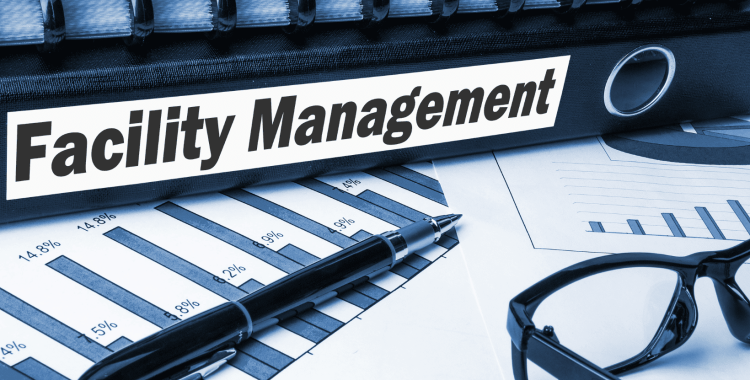Facility management plays a pivotal role in the smooth functioning of any business. It involves managing the physical assets and infrastructure of a company to ensure that they function effectively, efficiently, and safely. However, with the growing complexity of modern-day businesses, managing facilities has become more challenging than ever before. This is where Integrated Facility Management (IFM) benefits your business. IFM is a comprehensive approach that combines multiple facility management services into a single, unified solution. In this guide, we will explore everything you need to know about IFM and how it can benefit your business.

Understanding Integrated Facility Management (IFM)
Integrated Facility Management (IFM) is a modern approach to facility management that combines various services, including maintenance, cleaning, security, and more, into a single, comprehensive solution. IFM is designed to streamline facility management processes, reduce costs, and improve efficiency. By integrating multiple services, IFM provides a holistic view of facility management, making it easier to identify and address issues before they become major problems.
IFM is a collaborative effort between the facility management team and the service provider. The service provider is responsible for delivering the services, while the facility management team oversees the overall strategy and ensures that the services are aligned with the business goals.
Cost optimization with IFM
One of the primary benefits of IFM is cost optimization. By combining multiple services into a single solution, IFM reduces the need for multiple service providers, which can help businesses save money. Additionally, IFM providers use advanced technology and data analytics to identify areas where costs can be reduced. By consolidating services and optimizing costs, businesses can achieve significant savings without compromising on quality.
Improving efficiency with IFM
IFM can help businesses improve their efficiency by streamlining processes, reducing downtime, and improving asset utilization. By integrating multiple services, IFM providers can identify areas of inefficiency and implement solutions to improve them. For example, an IFM provider may use data analytics to identify the most efficient cleaning schedule or to optimize maintenance schedules based on asset usage patterns.
Enhancing customer satisfaction with IFM
IFM can also help businesses enhance their customer satisfaction by providing a better overall experience. By ensuring that facilities are clean, safe, and well-maintained, businesses can create a positive impression on their customers. Additionally, IFM providers can use data analytics to identify areas where customer satisfaction can be improved and implement solutions to address them.
How IFM Benefits Your Businesses
IFM offers numerous benefits to businesses of all sizes and industries.


The Evolution of Facility Management to IFM
Facility management has evolved significantly over the years. In the past, facility management was primarily focused on reactive maintenance, which involved fixing issues as they arose. However, with the growing complexity of modern-day businesses, reactive maintenance was no longer sufficient. This led to the development of preventative maintenance, which involved identifying potential issues before they occurred and implementing solutions to prevent them.
Preventative maintenance was an improvement over reactive maintenance, but it still had limitations. It was still largely focused on individual services, which made it difficult to identify and address issues that spanned multiple services. This led to the development of Integrated Facility Management (IFM), which combines multiple services into a single, comprehensive solution.
Components of an IFM program
An IFM program typically includes the following components:
Maintenance
Maintenance is a critical component of any IFM program. It involves ensuring that facilities are in good working condition, that equipment is well-maintained, and that repairs are made promptly when needed. Maintenance can be scheduled or reactive, depending on the needs of the business.
Cleaning
Cleaning is another critical component of an IFM program. It involves keeping facilities clean, safe, and well-maintained. Cleaning can include tasks such as dusting, vacuuming, mopping, and sanitizing.
Energy Management
Energy management involves optimizing energy usage to reduce costs and improve efficiency. An IFM provider may use data analytics to identify areas where energy usage can be reduced and implement solutions to address them.
Sustainability
Sustainability is becoming an increasingly important component of facility management. IFM providers can help businesses reduce their environmental impact by implementing sustainable practices such as waste reduction, energy conservation, and water conservation. It can also include the use of eco-friendly supplies.


How to implement IFM in your business
Implementing IFM in your business can be a complex process, but it can be broken down into the following steps:


Identify your facility management needs
The first step in implementing IFM is to identify your facility management needs. This involves assessing your current facility management processes and identifying areas where improvements can be made.
Choose an IFM provider
Once you have identified your facility management needs, the next step is to choose an IFM provider. When selecting an IFM provider, consider factors such as experience, expertise, and reputation.
Develop an IFM strategy
After selecting an IFM provider, the next step is to develop an IFM strategy. This involves defining your facility management goals and determining how IFM can help you achieve them. An IFM provider can help you develop an IFM strategy that is tailored to your business needs.
Implement the IFM program
Once you have developed your IFM strategy, the next step is to implement the IFM program. This involves working with your IFM provider to implement the various components of the IFM program.
Monitor and evaluate the IFM program
The final step in implementing IFM is to monitor and evaluate the program regularly. This involves tracking performance metrics and identifying areas where improvements can be made.
Case studies of successful IFM implementations
Many businesses have successfully implemented IFM programs and achieved significant benefits. For example, a global manufacturer was able to reduce its facility management costs by 20% by implementing an IFM program. Additionally, a multinational corporation was able to improve its customer satisfaction by 15% by implementing an IFM program that focused on enhancing the cleanliness and safety of its facilities.

Integrated Facility Management (IFM) is a comprehensive approach to facility management that can help businesses optimize costs, improve efficiency, and enhance customer satisfaction. By combining multiple services into a single, unified solution, IFM provides a holistic view of facility management, making it easier to identify and address issues before they become major problems. If you are looking to improve your facility management processes, consider implementing an IFM program. With the right IFM provider and strategy, you can achieve significant benefits and transform your operations.





